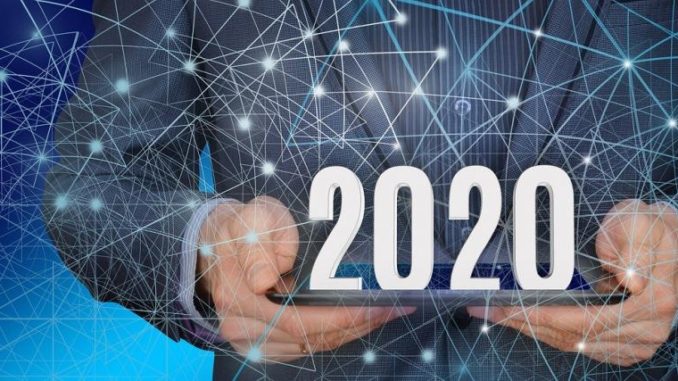
With the launch of 5G, artificial intelligence advancements and voice search becoming the norm, it’s now or never that brands will need to seriously consider how their customers and potential customers are engaging with their digital marketing efforts.
For the past few years – AI, 5G, voice search and other key buzzwords have topped lists exploring emerging technologies and digital marketing trends to pay attention to. However, 2020 will see these ‘emerging’ trends transition from ‘watchlists’ to digital marketing must-dos.
Here are a few ‘emerging trends’ that are now considered mature technology at the point of widespread adoption.
The necessary adoption of AI:
As machine learning and big data journey into the new decade, enterprises continue to search for that ‘leg-up’ to boost them past their competition. While AI and the technology behind it have been a critical development over the last decade, many enterprise-level businesses are yet to adopt systems that will ultimately help their businesses become smarter, more efficient, and more profitable.
A survey for the O’Riley ‘AI Adoption in the Enterprise’ report found that under 75% of respondents were either evaluating or not yet using AI, leaving the remaining 25% of enterprise businesses across industries such as health care, financial and electronics with a technological competitive advantage due to their operational AI systems.
As the capabilities and learnings of AI systems grow, those who have functioning systems in place will continue to reap the benefits at the expense of those who do not, including a piece of the predicted $2.9 trillion in business value and 6.2 billion hours in worker productivity. These claims are further validated by experts at McKinsey & Company – suggesting that by 2030 there will be a substantial performance gap between AI frontrunners and non- or partial-AI adapters, represented by an approximate 20% decline in cash flows of those who chose not to input AI technologies.
The point of adoption will reach peak necessity in 2020, with the flip from non-adopters to implementation taking place.
Optimizing for voice search (but not particularly revenue):
Despite immense growth of the term ‘voice search’ in the digital marketing lexicon, and a predicated 30% of searches in 2020 set to take place without using a screen, it’s still a relatively uncrowded area, with around 4% of businesses correctly optimized for voice search.
Voice search can be utilized for shopping, to answer questions, and even receive customer service from some brands. One major opportunity lies with subscription brands, and retailers – fundamentally anyone with a good or service that would hopefully require a repeat purchase. Amazon alone is reportedly expecting an estimated $5 billion in 2020 revenue thanks to voice search.
Undoubtedly, the multitude of positives outweigh the efforts required to optimize for voice search, and it goes far beyond implementing a strategy simply to remain ‘relevant’. Voice search is driving changes in SEO best practice, as well as expectations in customer service and expectation – however arguably the biggest case to be made for implementing a voice strategy lies in the fact that if you don’t, and your competition do – you will lose out.
5G
Faster speeds are, of course, desirable alone, but 5G will have more meaningful and far-reaching implications for consumers and businesses than just speed. 5G represents the new wave of technological possibilities — think autonomous cars, smart city infrastructure, wearable technology, connected devices and entertainment experiences – the list is endless.
New depths will be reached in the race to the ultimate personalized brand experience, with connected devices and the data they hold allowing advertisers to reach untapped levels. Think personalized, location based, real-time ads centered on your consumption or behavior patterns being the new norm.
At the center of all of this is the user, and the experience the technology will allow brands to provide. The digital experience and expectations surrounding the consumers’ new bare minimum will shift this year, with simple prompts such as a slower website or non-efficient checkout process being the new make or break for most businesses.
More than anything, 2020 will be the year businesses need to ‘keep up’ with user expectations, because if you’re not doing it – someone else is.
Brian Byer is a leading digital expert helping businesses navigate major technology trends to create a competitive advantage, and ultimately transform organizations. Bringing over 20 years of business and entrepreneurial experience, Byer is currently Vice President and General Manager at one of NYC’s top digital agencies, Blue Fountain Media.
If you enjoyed this article, sign up for SmartBrief’s free email from the ANA Data & Analytics SmartBrief. It’s among SmartBrief’s more than 200 industry-focused newsletters.
